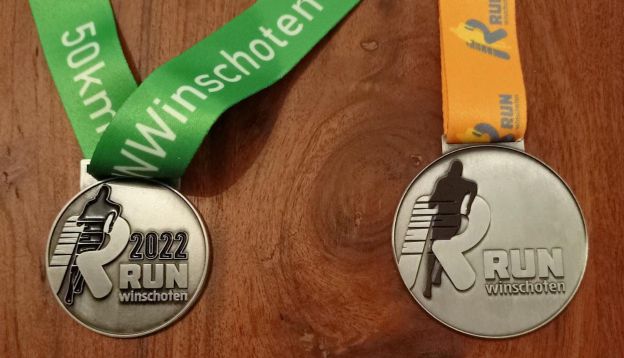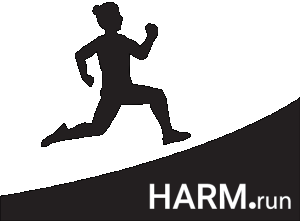
Last weekend provided the last long endurance training on the road to the Spartathlon, in the shape of the 100k RUN Winschoten. Like most of life’s big projects, this race was long enough to start with a high that turned into a low over time. The strange thing: I wouldn’t wish it any other way.
The start of the race was easy and in high spirits. Kicking off a large project with others who share our goals and enthusiasm gives so much energy. Off course the group split up soon. As in any project, smaller groups form as everyone focusses on their own tasks or strategy. One great thing about ultra-running is that it’s easy to connect with others in this stage: other participants have enough time and reserves for talking. I’m always grateful for this phase as I kinda need it. The company and talk of others carries you onward without you even noticing, prolonging that feeling of fresh energy you started with. Stories and memories are shared to enjoy them together and to broaden each other’s horizons.
In all projects in our jobs, all events in our lives that require diligent planning and monitoring, that initial collective wonder and enthusiasm slowly disappears. We’re expected to become independent and work more individually. This is not always fun, but the transition is both necessary and healthy. In this 100k race I entered this phase after 40k, when all participants were running at their own pace and there were no groups to join. The work is up to you now. Focus on your own tasks. Figure it out on your own. This lasted from 40k through 70k and I experienced it as a hard time.

40k of running. In this particular race, this consisted of 4 laps of 10k each. This painfully clarified I wasn’t even halfway done, even though I’d already run for almost 4 hours. The fun part was behind our backs and so was the easy part, as the body didn’t feel as fresh anymore. And there you are. Confronted by feelings of loneliness and depleting energy, hit by the realization that the distance ahead exceeds the miles covered so far. Put in the work. Survive. That seems all there is. And on that road through the park, where you never meet anyone to distract you, that’s where the voices start talking. What are you doing this for? Why? Do you really want this? What would you lose if you’d quit right now? Isn’t it better to stop and never do this again?
Questions. Doubt. Maybe even insecurity. Whether it’s in that race or that hard task you’ve taken on, the company you started, that habit you’re trying to break… You’d rather not have encountered this moment, not have experienced these feelings. If only the race were easy and devoid of obstacles…

Those were my first thoughts. They lasted about 2k. And then I realized the conversation in my head had been taken over by an uninvited guest. I saw the words he spoke weren’t right. I was there to learn how to really run this distance, to master it just a bit more. To grow stronger and get to know my body’s reactions more intimately. And above all: to learn to keep my eyes on what’s important to me, and continue to work on it even when it gets hard. This was exactly what I’d come for. The mental conversation was once again taken over, this time by the voice of clarity: this is where I belong, there’s no place I’d rather be.
This gave room for a bit of peace and surrender. Sure, the miles were still tough. But knowing that this was exactly what I wanted to live through helped accept the obstacle. I once read a booklet where Seth Godin describes how projects that aim to reach something valuable, something meaningful, often go through a hard phase first. We can let ourselves become discouraged, but the most valuable returns often come only after we persevere and weather this phase he calls The Dip1. Running teaches me that enduring such a dip is (partly) trainable. I want to be able to endure the hard stages of that 247k Spartathlon in a few weeks, and am grateful for this opportunity to train for that. But more important than getting faster and persevering longer, running provides chances to work on character. I run because it teaches me to keep working on the right stuff when life gets hard. “I’m not training for a race, I’m training for life.” 2
Sometimes the universal is found in the specific: life in a race. But… should every race be a sufferparty? This too was answered during those tough 30kms. Though this dip lasted for almost 3 hours, the lonely roads were interspersed with streets filled with encouragements from people I’d come to know in all the preceding laps. During that dip, their encouragement provided lightness, their happiness distraction and their caring questions a feeling of community. Together they cut that dip into small pieces I was able to digest. Dips aren’t fun, but they’re a part of life and they can help us grow. And whenever a dip presents itself… we shouldn’t go through it alone.
References:
–1 Book ‘The Dip‘ by Seth Godin.
Thought-provoking in a constructive way. It’s a small book, easy to read. I’ll probably read it several times during my lifetime.
–2 I think this is a quote by David Goggins. I also think it’s a great mindset.
– Official race results, Strava
– Ultraned race report (in dutch)

Leave a Reply